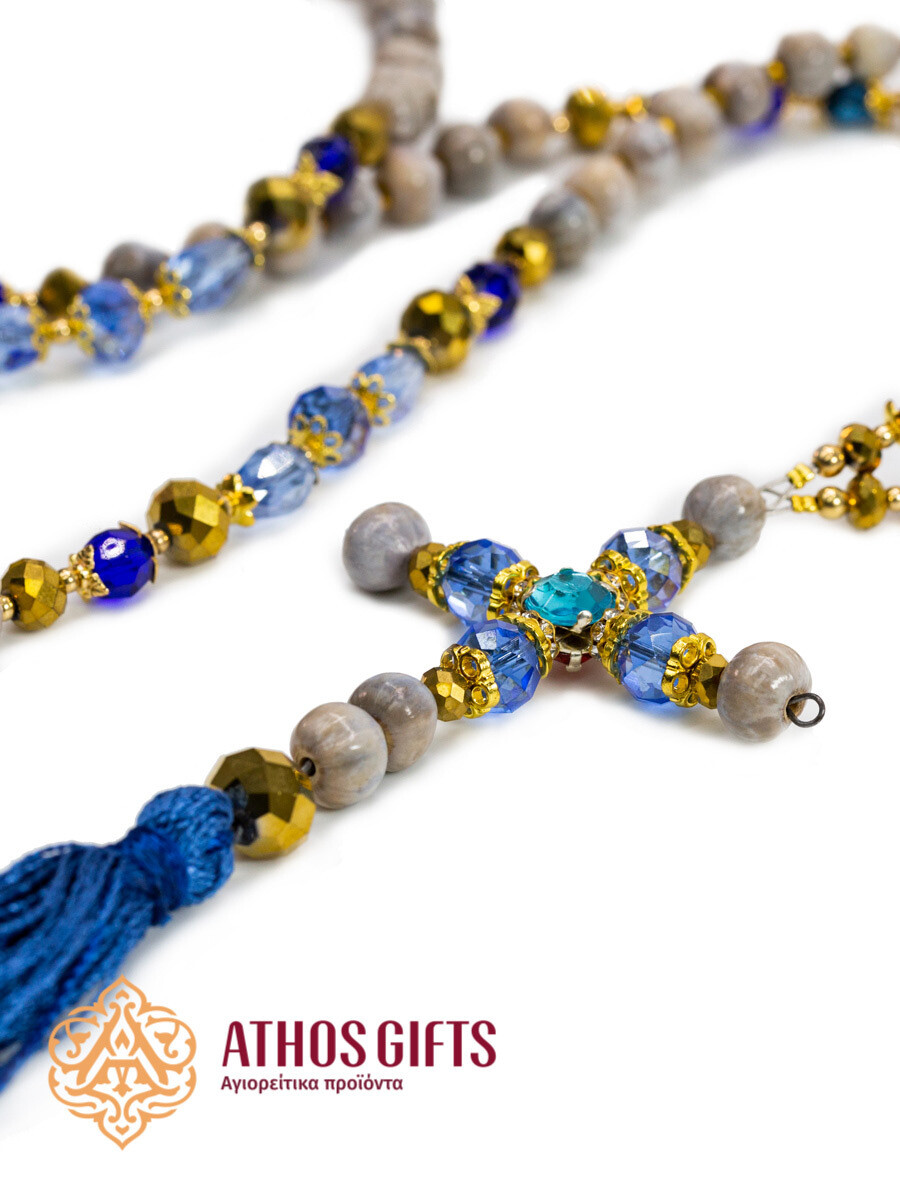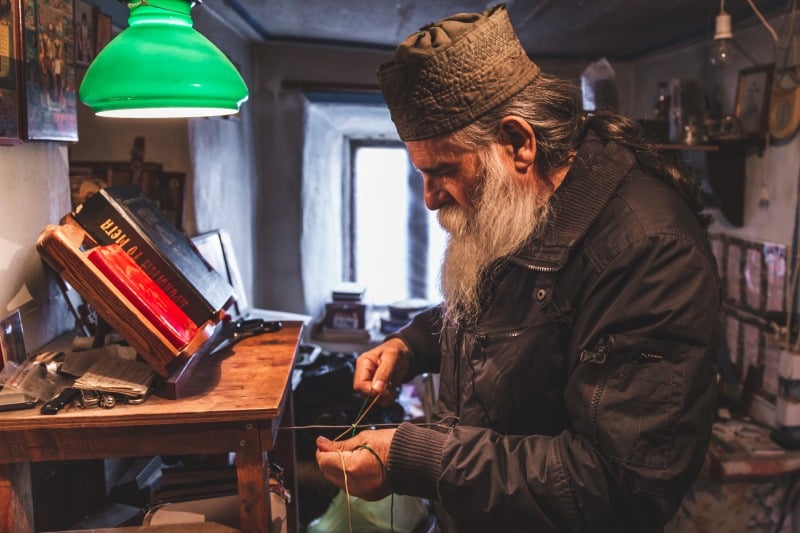
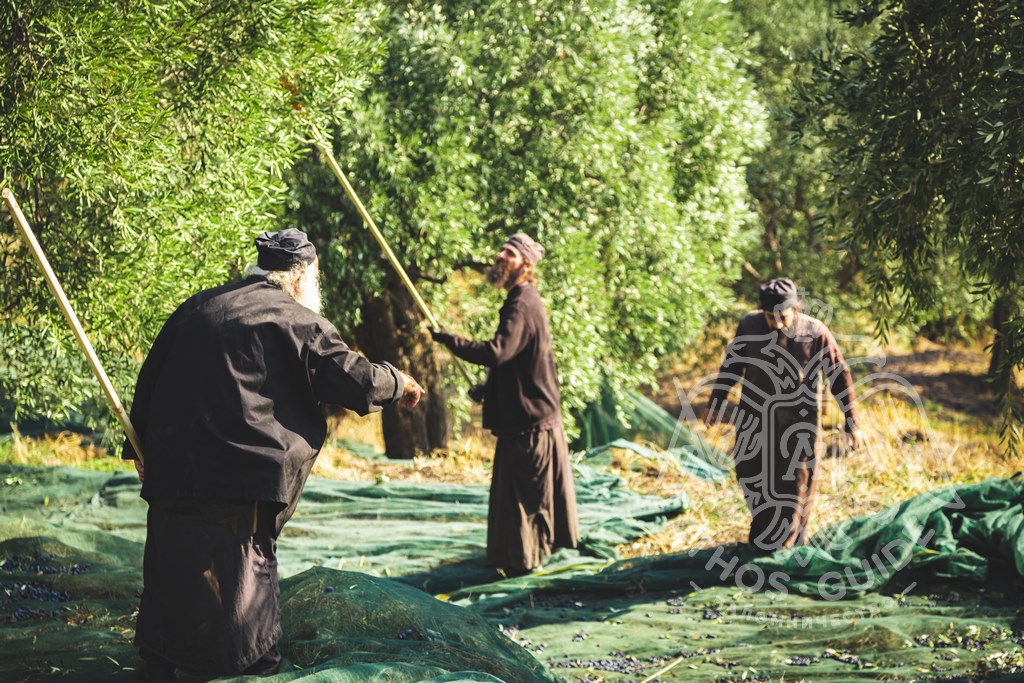
The occupation of the monks with various kinds of chores and handiwork is an important part of the monastic life and of the spiritual practices carried out in the monasteries. Handicrafts are an integral part of life within the monastic community. Spiritual struggle and unceasing prayer through which the daily work is carried out permeates the products of the monks' labor, beautifying and elevating the outcome of their work. Believers often seek out Athonite products, trusting them to be a blessing for those living secular life, deprived of the peace of the daily practice of prayer that is an integral part of monastic life.
It is argued that the handiwork is the best way to concentrate and open your heart to God. It creates the right conditions to free people’s minds of worries, repeated thoughts and reflections. This way, a monk's heart opens and receives the grace of God. It is filled with the peace and serenity of prayer.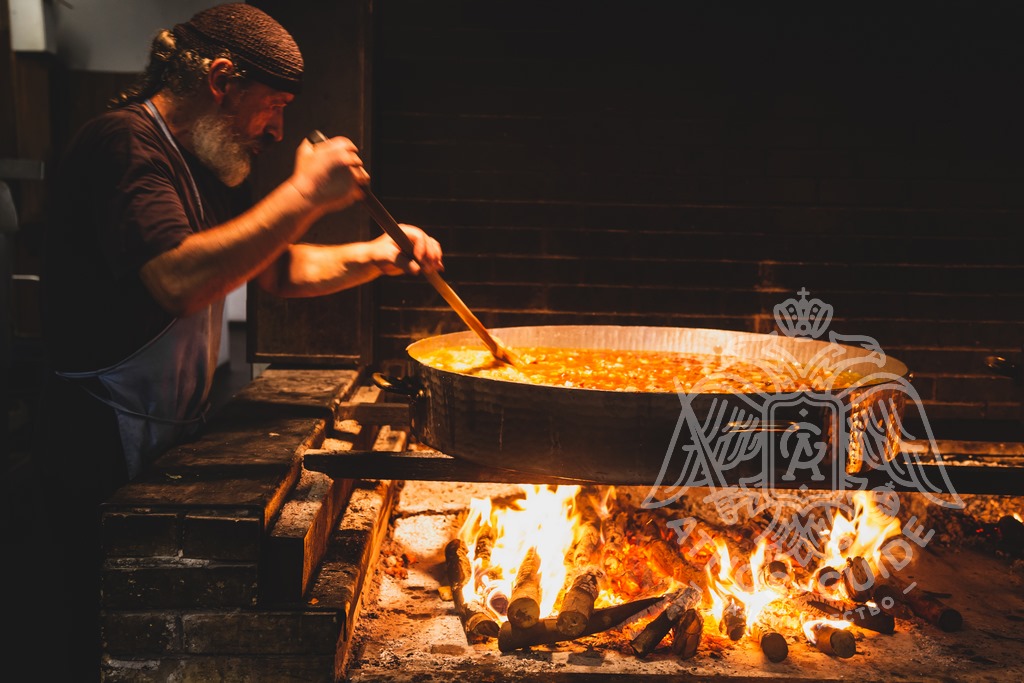
As Fr. Benedict of the New Skete states,
"A monk is a devotional being, who glorifies God all day long. He does this inside the church, but also outside, carrying out his chores or his handiwork. Through those activities, he tries to purify his mind, so that he may ascend to God. [...] When we lovingly offer a handiwork to our brother, then through it he also feels rested. When one knows that an icon was painted with prayer, after the Divine Liturgy, through greetings, petitions, etc., then the handiwork is also sanctified and the one who makes it draws grace from it. By ceasing daily routines, a monk is left uncompleted. The handiwork is very helpful; that is why it has been so distinguished by the Fathers of our Church."
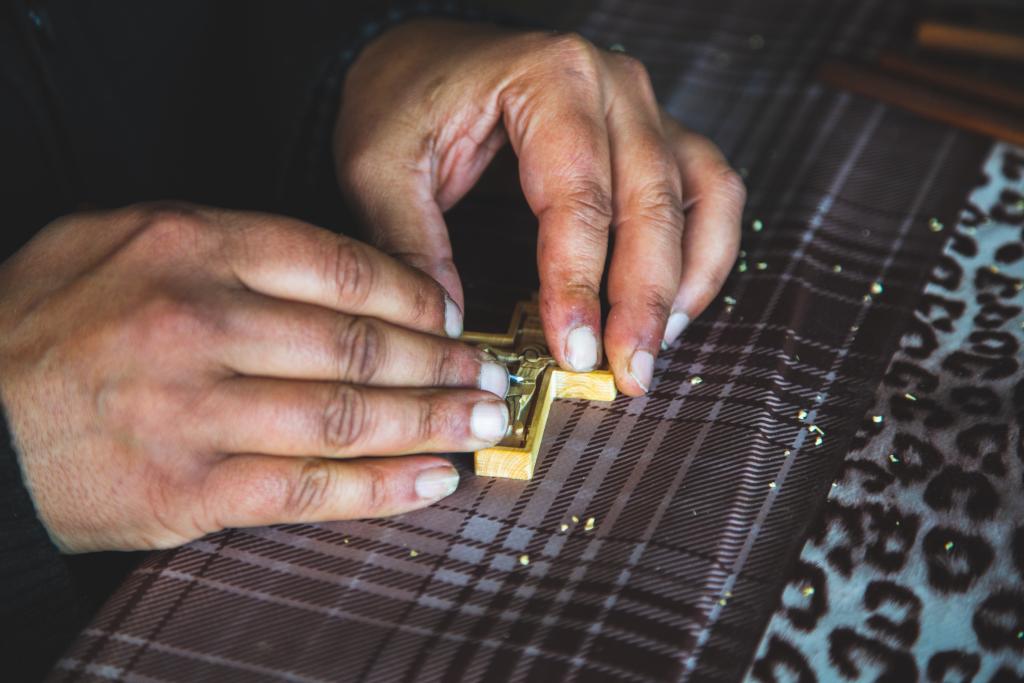 Although the monastic state is primarily a place of worship, nevertheless the physical exercise of the monks and the coherence between soul and body are two equally important aspects. Indeed, it is often argued that spiritual progress is impossible without the help of work, which intensifies mental prayer. While engaged in work, the monk finds the focus of his prayer, keeps his mind composed, and gains sincere communion with God. Manual occupation helps and supports mental prayer.
Although the monastic state is primarily a place of worship, nevertheless the physical exercise of the monks and the coherence between soul and body are two equally important aspects. Indeed, it is often argued that spiritual progress is impossible without the help of work, which intensifies mental prayer. While engaged in work, the monk finds the focus of his prayer, keeps his mind composed, and gains sincere communion with God. Manual occupation helps and supports mental prayer.
In addition to the prayerful cohesion that comes from manual labor, the daily work of the monks ensures the livelihood of the monasteries. Thus, the brethren of each monastery, skete or cell are trying to occupy themselves with various kinds of craft. .jpg) Some monks specialize in icon-painting, others make frankincense, woven bracelets, prayer ropes or handcraft crosses. They also sew hieratic garments, cultivate the land, raise honeybees, etc. In this sense, monastic work is important to meet the functional needs of the monasteries.
Some monks specialize in icon-painting, others make frankincense, woven bracelets, prayer ropes or handcraft crosses. They also sew hieratic garments, cultivate the land, raise honeybees, etc. In this sense, monastic work is important to meet the functional needs of the monasteries.
In every case, the work of man proves to be an act loved by God. In fact, according to the Athonite tradition, the Mother of God Herself persuaded the monks to engage in labor.
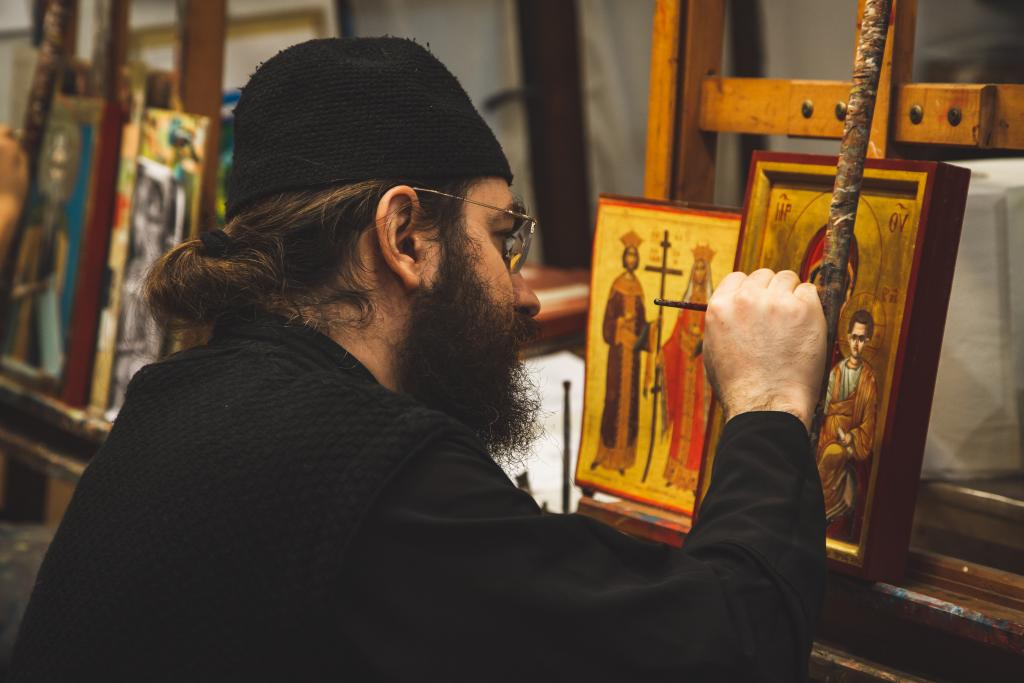 According to a well-known Athonite tale, there was a monk who had not been trained in any craft. Once, while he was collecting alms to satisfy his needs, the Most Holy Theotokos appeared before him and rebuked him for his laziness. Immediately afterwards She urged him to make spoons; She then gave him the necessary tools and taught him how to use them.
According to a well-known Athonite tale, there was a monk who had not been trained in any craft. Once, while he was collecting alms to satisfy his needs, the Most Holy Theotokos appeared before him and rebuked him for his laziness. Immediately afterwards She urged him to make spoons; She then gave him the necessary tools and taught him how to use them.
The handicrafts of the monks are made with the prayer and blessing of Our Lady's Garden. It is a wonderful gift for the believers who seek to get a little closer to the spirituality of the monastic state.
You are welcome to visit our online store to support the work of the monks and purchase traditional products, crosses, icons and braided bracelets handcrafted by the Athonite fathers.
May the Lord, through the prayers of our patroness, the Holy Theotokos, bless you, your family and all your loved ones!
